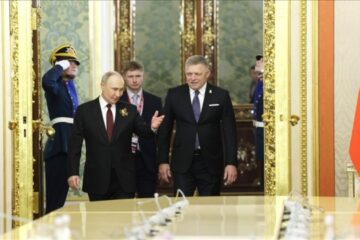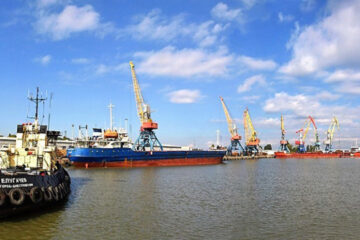
The governments of Slovakia and Hungary bear full responsibility for their energy security and have every opportunity to diversify their supplies.
That is according to former Slovak Minister of Economy Karel Hírman, an expert in the oil and gas sector. He shared this in an exclusive comment to Ukrinform.
“I categorically disagree with this,” Hírman said in response to accusations from Bratislava and Budapest claiming that Ukraine supposedly threatens their energy security by targeting the Druzhba oil pipeline, which transports Russian oil through Ukrainian territory.
“The war has been ongoing since 2014, and Putin’s full-scale invasion began in February 2022. When the supplier of the raw material attacks the transit country, thinking it will have no negative impact on deliveries is, to put it mildly, naive,” the former minister emphasized.
Hírman also highlighted an important context regarding recent accusations: the Druzhba pipeline has stopped operations multiple times since February 2022 due to Russian drone and missile attacks on Ukrainian energy infrastructure. This occurred while Hírman was serving as Slovakia’s Minister of Economy (2022–2023).
He noted that the Hungarian MOL Group, which controls refineries in both Hungary and Slovakia (Slovnaft refinery), has had the ability to diversify oil supplies for several years.
“When I was Chairman of the Supervisory Board of Transpetrol, the Slovak pipeline operator, in 2010–2012, MOL requested that the Adria pipeline be modernized and expanded so that MOL’s refineries in Hungary and Slovakia could be fully supplied via this pipeline,” Hírman explained.
The Adria pipeline runs from the Omisalj terminal on Croatia’s Krk Island, through Hungary, and connects to Druzhba in southern Slovakia.
The modernization and capacity expansion of Adria were completed in 2015, and since then, MOL representatives, including Slovnaft officials, publicly announced that they were beginning to supply oil through this pipeline, Hírman added.
“This did happen, but in minimal volumes. Over the past two years, for example, supplies through this pipeline to Slovnaft amounted to about 800,000 tons per year. The remaining 4.5 million tons came via Druzhba from Russia,” he noted.
Hírman stressed that the technical capacity of the Adria pipeline and Omisalj terminal is fully sufficient to supply these refineries with oil.
“It is MOL’s responsibility — why haven’t they ensured supply? Why haven’t they signed tanker contracts or bought oil through this route, which is in excellent technical condition and has ample capacity?” the expert asked.
“Energy security is ensured by the state and the owners of these refineries. Ukraine does not provide Slovakia or Hungary with energy security or oil supplies for MOL and is not responsible for this,” the former minister emphasized.
He also suggested that Ukraine could have banned the transit of Russian oil through its territory back in February 2022.
“I consider it accurate to say that the money Putin receives from selling oil is used to produce the drones and missiles used to attack Ukrainian cities, but this oil still ends up in Hungary and Slovakia via Ukraine,” Hírman added.
According to Ukrinform, the European Commission considers accusations made by Hungarian Foreign Minister Péter Szijjártó about a supposed conspiracy between Ukraine, the European Commission, and certain EU member states regarding attacks on the Druzhba pipeline to be blatant disinformation.
The European Commission also rejected claims of passivity in response to the attacks on Druzhba, reaffirming that the EU’s energy security is not under threat.
Previously, Hungarian expert Andras Rasz told Ukrinform that recent Ukrainian strikes on the Druzhba pipeline are part of a larger, intensified campaign targeting Russia’s oil sector, and supply interruptions to Hungary and Slovakia are only a side effect.
President Volodymyr Zelensky noted on Sunday that Ukraine’s friendship with Hungary depends on the official position of Budapest, likely referencing the Druzhba pipeline, which supplied Russian energy to Hungary but stopped functioning due to attacks.
According to Hungarian Foreign Minister Péter Szijjártó, Ukraine carried out “serious attacks” on Hungary’s energy supply in recent days. In his view, this constitutes an attack on Hungary’s sovereignty, and he called on the Ukrainian President to stop “threatening Hungary.”
Ukraine’s Foreign Minister Andrii Sybiha responded to Szijjártó’s statements, urging him not to dictate to the Ukrainian President what to do or say.
Photo: from Karel Hírman’s archive



